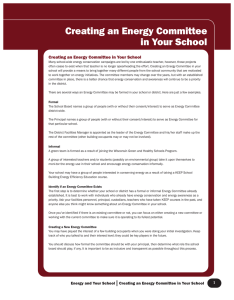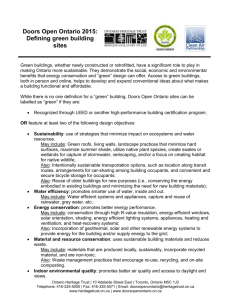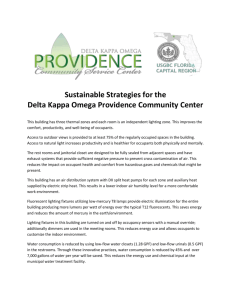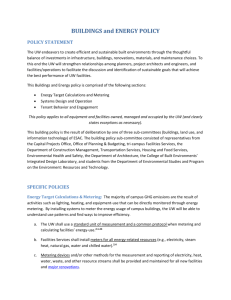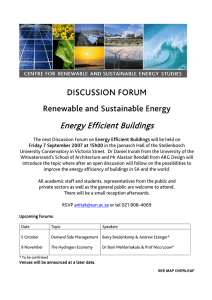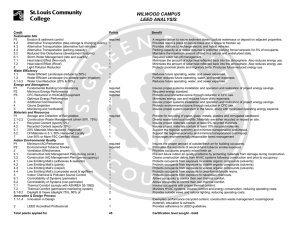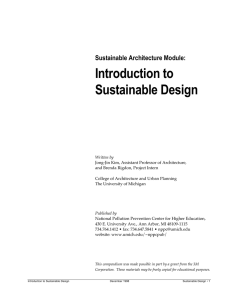So What Can We do to Conserve Energy and Why
advertisement
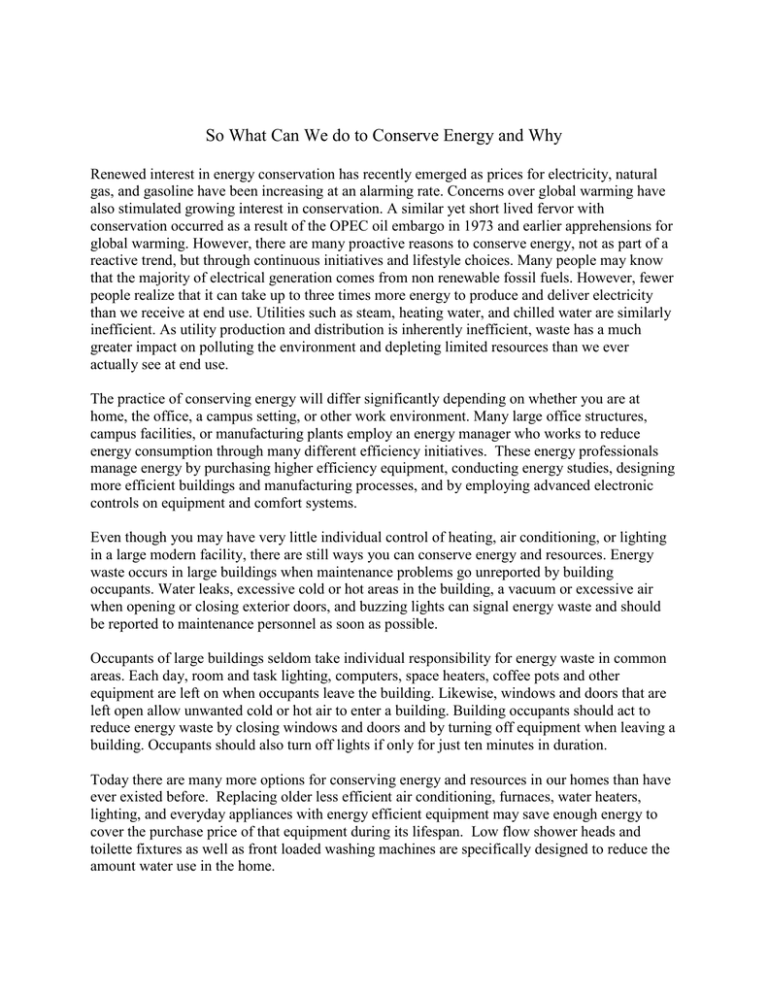
So What Can We do to Conserve Energy and Why Renewed interest in energy conservation has recently emerged as prices for electricity, natural gas, and gasoline have been increasing at an alarming rate. Concerns over global warming have also stimulated growing interest in conservation. A similar yet short lived fervor with conservation occurred as a result of the OPEC oil embargo in 1973 and earlier apprehensions for global warming. However, there are many proactive reasons to conserve energy, not as part of a reactive trend, but through continuous initiatives and lifestyle choices. Many people may know that the majority of electrical generation comes from non renewable fossil fuels. However, fewer people realize that it can take up to three times more energy to produce and deliver electricity than we receive at end use. Utilities such as steam, heating water, and chilled water are similarly inefficient. As utility production and distribution is inherently inefficient, waste has a much greater impact on polluting the environment and depleting limited resources than we ever actually see at end use. The practice of conserving energy will differ significantly depending on whether you are at home, the office, a campus setting, or other work environment. Many large office structures, campus facilities, or manufacturing plants employ an energy manager who works to reduce energy consumption through many different efficiency initiatives. These energy professionals manage energy by purchasing higher efficiency equipment, conducting energy studies, designing more efficient buildings and manufacturing processes, and by employing advanced electronic controls on equipment and comfort systems. Even though you may have very little individual control of heating, air conditioning, or lighting in a large modern facility, there are still ways you can conserve energy and resources. Energy waste occurs in large buildings when maintenance problems go unreported by building occupants. Water leaks, excessive cold or hot areas in the building, a vacuum or excessive air when opening or closing exterior doors, and buzzing lights can signal energy waste and should be reported to maintenance personnel as soon as possible. Occupants of large buildings seldom take individual responsibility for energy waste in common areas. Each day, room and task lighting, computers, space heaters, coffee pots and other equipment are left on when occupants leave the building. Likewise, windows and doors that are left open allow unwanted cold or hot air to enter a building. Building occupants should act to reduce energy waste by closing windows and doors and by turning off equipment when leaving a building. Occupants should also turn off lights if only for just ten minutes in duration. Today there are many more options for conserving energy and resources in our homes than have ever existed before. Replacing older less efficient air conditioning, furnaces, water heaters, lighting, and everyday appliances with energy efficient equipment may save enough energy to cover the purchase price of that equipment during its lifespan. Low flow shower heads and toilette fixtures as well as front loaded washing machines are specifically designed to reduce the amount water use in the home. Because of differences in construction, our homes are typically more sensitive to outside temperatures than large commercial or institutional buildings. For this reason, programmable thermostats or even simple manual temperature setback at night or when the home will be unoccupied is very effective for saving energy. Likewise, ensuring tight seals at doors, windows, attics, and at all penetrations into the house are necessary to minimize heat loss in winter and heat gain in summer. Cost effective insulated glass widows with thermal breaks as well as additional insulation placed in attic spaces are other possible ways to reduce energy use in the home. With the many advanced technologies currently available to home owners it is now possible for us to become energy managers in our own homes. Whether at home or work, everyone should be more cognizant of our energy use and all apparent sources of energy waste. Promptly reporting maintenance problems, taking individual responsibility for energy use in common areas of buildings, replacing older inefficient equipment in our homes, and employing good conservation habits will greatly reduce the negative impacts of utility production and energy use. Submitted by: Charles Darnell Director of Physical Plant Western Illinois University
